Lecture for The Boy on the Wooden Box
_______________________________________________________________________________________________________________________________________________________
Two very short stirring videos. Please watch:
1) in link form--
https://www.pbs.org/newshour/brief/239888/reva-kibort
One of my favorites albeit too short----
2)
Lecture Notes for The Boy on the Wooden Box
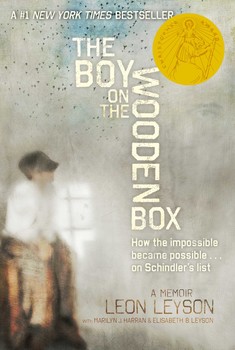
Author: Leon Leyson (birthname: Leib Lezjon)
Published: 2013
Category: Nonfiction, Memoir; Historical, WWII history
Awards: 2014 Sydney Taylor Honor Book, ALA 2014 Notable Children's Books, 2013 Cyblish Award Young Adult Nonfiction Finalist, 2014 Christopher Award Winner, 2014 IRA Teachers' Choices, Dorothy Canfield Fisher Children's Book Award Nominee 2015, New York Times Bestseller
Pages: 208
Reading/Grade Level: Ages 9-12; Grades 4th-6th
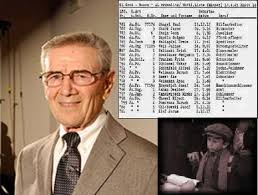
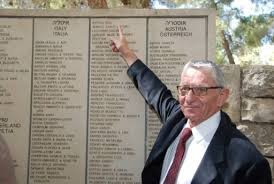
Now here is a pic of Oskar Schlinder and his wife, Emelie
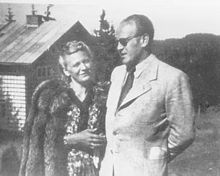
Amazon actually has a pretty great summary of this book:
"In the #1 New York Times bestseller, Leon Leyson (born Leib Lezjon) was only ten years old when the Nazis invaded Poland and his family was forced to relocate to the Krakow ghetto.
Leon Leyson (born Leib Lezjon) was only ten years old when the Nazis invaded Poland and his family was forced to relocate to the Krakow ghetto. With incredible luck, perseverance, and grit, Leyson was able to survive the sadism of the Nazis, including that of the demonic Amon Goeth, commandant of Plaszow, the concentration camp outside Krakow. Ultimately, it was the generosity and cunning of one man, a man named Oskar Schindler, who saved Leon Leyson’s life, and the lives of his mother, his father, and two of his four siblings, by adding their names to his list of workers in his factory—a list that became world renowned: Schindler’s List.
This, the only memoir published by a former Schindler’s List child, perfectly captures the innocence of a small boy who goes through the unthinkable. Most notable is the lack of rancor, the lack of venom, and the abundance of dignity in Mr. Leyson’s telling. The Boy on the Wooden Box is a legacy of hope, a memoir unlike anything you’ve ever read."
Reading Monster at the beginning of the semester we found ourselves debating how we define a monster, and how troubling that definition can be, especially when applied to characters in ambiguous circumstances like Steve Harmon. However as we move on to The Boy on the Wooden Box the definition of a monster seems, especially at first glance, much simpler and more clearly defined. Yet Leyson too draws us into a larger debate on humanity, survival, culpability, and redemption.
Some have called Oskar Schindler an opportunist for making a business, and quite a bit of money, during WW II under Nazi control. Yet in the process he saved countless lives and used his position of power (at his own risk) to aid those persecuted, eventually spending his money to further save his workers at the end of the war. As Leon Leyson states in his prologue,
“We survived the Holocaust because of the enormous risks Schindler took and the bribes and backroom deals he brokered to keep us, his Jewish workers, safe from the gas chambers of Auschwitz. He used his mind, his heart, his incredible street smarts, and his fortune to save our lives. He outwitted the Nazis by claiming we were essential to the war effort even though he knew that many of us, myself included, had no useful skills at all” (3).
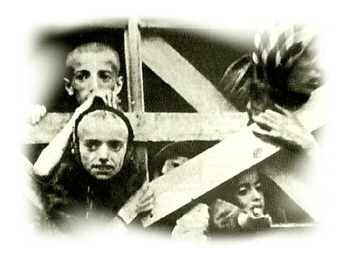
What did you think of Leyson’s portrayal of Schindler and how did you view him? At the beginning Leyson mentions initially categorizing Schindler along with all the other monsters that surrounded him. Yet his opinion of Schindler changes greatly and he credits him with not only saving his life but numerous others.
Discussions about the Holocaust rightly highlight questions of guilt, responsibility, humanity, inhumanity, prejudice, survival, endurance, and memory. Some books dare to go into the contentious area of forgiveness and all that that entails.
As you read this book I wonder what came up for you in how you viewed not only the Jewish characters around which this book is built, but also other characters. Certainly Leyson shows us the distance that grows between him and the non-Jewish townspeople and the friends he lost and gained. However there were many people that we did not get the opportunity to know further. Leyson’s account is understandably limited to what he experienced, and what he experienced, was incredible devastation, trauma, and loss.
In our forum conversations this week we'll be looking at what moments of sacrifice, or moments of heroism, most adsorbed and stunned you? Another question asks you what were your reactions to the narrative of Leyson, his family, and his people’s suffering? Did you know most of this narrative already from history classes, movies, documentaries, and other memoirs, or were there descriptions of torture, famine, and living conditions in this book that surprised you? Were there areas, or subjects that you wanted to know more about?
Finally in our conversations I want us to think too about why survivors’ stories are so essential to our collective knowledge and understanding of history. How do stories like Leyson's help to frame the larger conscience of the world? And would you argue that memoirs like this one help not only to inform us of the past, but also, to direct the course of the future? A larger question underneath all of this is how much does memoir matter, or help to shape our perspectives? Part of that is connected to a question about how much art matters, and really any medium that teaches us about humanity, and what it means to be human in a world that often might seem anything but humane.
So many of my books have margins that are covered in notes. Whenever I read this book though I find that I still underline as much as ever but I do not make as much written commentary in the margins. I was reflecting on this today and wondering why that was. In part I wondered if it was because this book was a memoir and thus I came in to it with different expectations than I perhaps would with a fiction book. Another thought I had was that in reading Leyson’s story time and time again I find myself absorbing the larger storyline along with the smaller details that Leon provides. I look less for universal themes, and connections to universal themes, while I read, instead simply letting the book unfold as it did for our narrator. It is a tough journey every time and I imagine it was for many of you as well. Take some time to process your reading and to think about not just the reading itself, but how you processed this book as a reader.
Finally YouTube is rich with videos of Leon speaking. Check out a few of them if you want. I tend to skip around and look at a handful fast forwarding past the intros to the meatier parts of Leon's story. Worth a google certainly if you are interested. --Side note: I mentioned in my weekly video the videos were short. Leon's here is actually quite long. Why not play Leon's video and watch 10 minutes in the middle or so, or longer if you are interested. Take a few notes if you think you will want to make connections back to his statements in your first paper! :)
